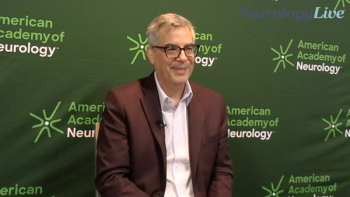
The executive vice president of research at the National MS Society talked about how the award continues to honor transformative multiple sclerosis research and inspire the next generation of investigators. [WATCH TIME: 5 minutes]

The executive vice president of research at the National MS Society talked about how the award continues to honor transformative multiple sclerosis research and inspire the next generation of investigators. [WATCH TIME: 5 minutes]

Using discovery and validation cohorts, plasma miRNA-214 levels were shown to correlate with disease severity and were also associated with plasma neurofilament light and CSF inflammatory cytokines.
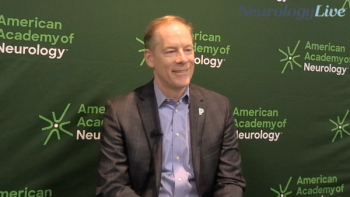
The chief scientific officer of the Parkinson’s Foundation discussed the foundation’s efforts to integrate whole genome sequencing into PD GENEration and expand access across diverse global populations. [WATCH TIME: 4 minutes]

A recently published phase 1 study revealed that coadministration of intranasal zavegepant with an oral contraceptive did not lead to clinically significant changes in drug exposure.

Philip Kremer, MD, Research Director Neurology, Center for Human Drug Research, provided clinical insights on the early-stage progress of ARV-102, an LRRK2 degrader, in LRRK2-associated diseases.

Although the study reported no evidence linking human leukocyte antigen alleles to migraine, the findings were not replicated, suggesting the HLA system may not be involved in migraine susceptibility.
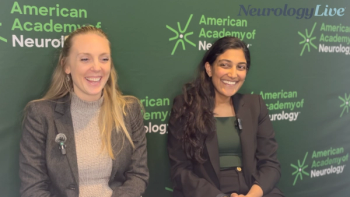
A duo of neurology experts from Feinberg School of Medicine talked about the diagnostic challenges, evolving understanding, and clinical implications of paraneoplastic neurological syndromes. [WATCH TIME: 3 minutes]

Afterimage duration was more prolonged in patients with migraine with aura than those without, suggesting differing underlying pathophysiology between the two subtypes despite the exact mechanisms remaining unclear.

The intranasal treatment, originally marketed in 2020, will now be available for patients with acute repetitive seizures as young as 2 years old.
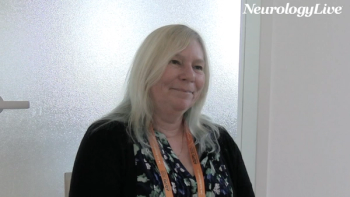
The professor in the Department of Pathology and Laboratory Medicine at the University of California, Irvine, gave clinical insights on efforts to refine neuropsychological outcome measures for individuals with Down syndrome at risk for Alzheimer disease. [WATCH TIME: 3 minutes]

Beth Stein, MD, director of neuromuscular diseases at St. Joseph’s Health, shared insights on the impact of a newly approved pre-filled syringe formulation of efgartigimod, highlighting its potential to transform care delivery.

CT-132, an approach that aims to reduce brain hypersensitivity, becomes the first marketed digital treatment to prevent migraine, intended to be used with other previously approved medications.
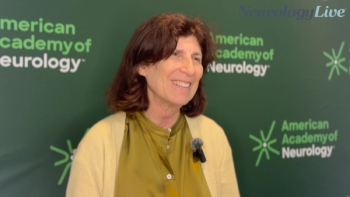
The director of NYU Langone's Multiple Sclerosis Comprehensive Care Center discussed the importance of early, high-efficacy treatment for pediatric MS. [WATCH TIME: 3 minutes]

In a late-stage trial, telitacicept demonstrated significant and rapid clinical improvements in gMG, achieving notable symptom reductions, improved quality of life, and strong safety outcomes.

The chief medical officer at Cognito Therapeutics provided a clinical overview on promising findings surrounding the company’s gamma sensory stimulation device in patients with Alzheimer disease. [WATCH TIME: 10 minutes]

High doses of RNS60 led to greater number of patients with modified Rankin scale scores between 0-2, improved EQ-5D-5L index score, and enhanced NIHSS score at each pre-specified time point over placebo.

Elizabeth Head, PhD, a professor in the Department of Pathology and Laboratory Medicine at the University of California, Irvine, shed light on the emerging research and trials surrounding the interplay between Alzheimer disease and Down syndrome.

In late-breaking findings from the TRANQUIL study presented at AAN 2025, the wearable demonstrated significant improvements in tremor reduction and daily functioning over a sham device.
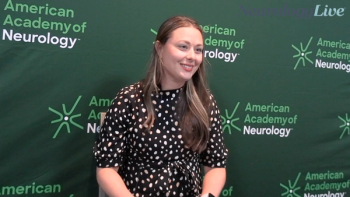
The senior director of mission programs at The ALS Association discussed how the thinkALS Toolkit can aid general neurologists in identifying and referring suspected cases more efficiently. [WATCH TIME: 5 minutes]

Here's some of what is coming soon to NeurologyLive® this week.

Patients treated with efgartigimod for myasthenia gravis were found to have a higher incidence and severity of infections compared to those treated with immunoglobulins.
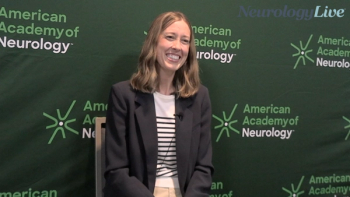
The physician assistant at UCSF Movement Disorder and Neuromodulation Center reflected on the value of AMDAPP in fostering professional connection, education, and patient-centered care among movement disorder APPs. [WATCH TIME: 3 minutes]

Test your neurology knowledge with NeurologyLive®'s weekly quiz series, featuring questions on a variety of clinical and historical neurology topics. This week's topic is on essential tremor.

The phase 1 LUMINA trial evaluates Amylyx Pharmaceuticals' AMX0114, an antisense oligonucleotide targeting calpain-2, as a potential therapy for ALS by focusing on safety, tolerability, and biomarkers tied to disease progression.

ARV-102 showed dose-dependent LRRK2 degradation and favorable safety in its first-in-human trial, supporting its promise for treating LRRK2-linked neurodegenerative diseases.
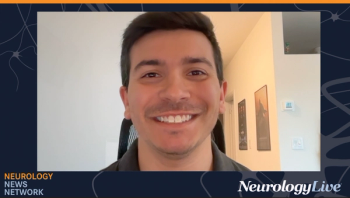
Neurology News Network. for the week ending April 12, 2025. [WATCH TIME: 3 minutes]

Phase 2b trial results showed Descartes-08, a CAR-T therapy, achieved sustained efficacy and a strong safety profile in myasthenia gravis, with notable responses in biologic-naïve patients and no major safety concerns over 12 months.

Take 5 minutes to catch up on NeurologyLive®'s highlights from the week ending April 11, 2025.
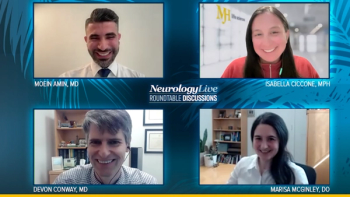
Experts discussed recent advancements in diagnostic criteria, imaging techniques, and the evolving understanding of multiple sclerosis subtypes and treatment responses. [WATCH TIME: 10 minutes]

Cleveland Clinic’s $1.1 billion Neurological Institute, opening in 2027, will revolutionize neurological care with a state-of-the-art, patient-centered design integrating advanced technology and innovative care solutions.